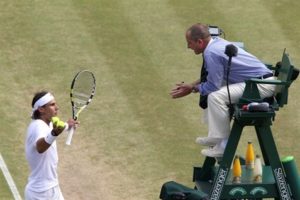
Can you call a let for a sneeze? Can you ask your opponent to remove their bright neon yellow jacket because it’s distracting?
Now is your chance to ask all those burning league questions. We’ll get you the answers, or will your question be the one to Stump The Ump?
You’ve read his Court of Appeals column in Tennis magazine, and now Rebel Good is coming to WWTA! Rebel Good has officiated tennis for close to 30 years. and has worked at more than 20 US Open events, two Olympics and numerous Davis Cup and Fed Cup events. Can you stump Rebel with your question?
Serve Ready?
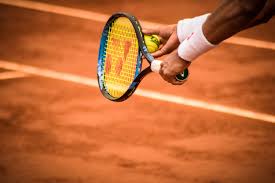
During a singles match, I called the score and proceeded to serve. My opponent returned the ball into the net, then claimed that she hadn’t been ready for the serve. I honestly didn’t pay attention to what she was doing when I began my service motion, but shouldn’t she have called out that she wasn’t ready when I called the score and bounced the ball?
What Is The “Let” Area On Court?
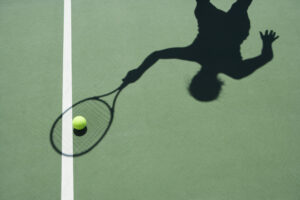
My opponent called a let because she thought the ball from the next court was going to come onto our court. The ball did not actually enter our court. Doesn’t she lose the point?
What About Server’s Pace – Not So “Fast”

Q. Sometimes my opponents say I serve too fast. I wait to see if my opponent is ready, not moving, then serve. This just happened with a friend, I thought she looked ready for my serve. She looked stable. She said she was backing up a little. I thought she was just moving her feet to get ready. It wasn’t much of a big motion for me to notice her not ready. I would have waited to serve if I knew she wasn’t ready. What is the protocol?
Fault or Let – Know the Rules when Serving
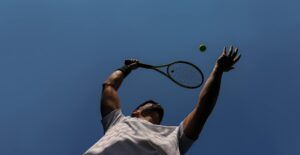
I was receiving serve in a match tiebreaker for mixed doubles match. After hitting a first serve fault, the server lined up to hit a second serve. He served a second fault, but as the fault call was being made the server called a let because a player from a neighboring court was exiting through the gate behind me. I contend he had an opportunity to stop his service motion before delivering the serve, but once the ball is served it has to stand. What is the correct call?
Doubles Communication – When Is “No” OK?
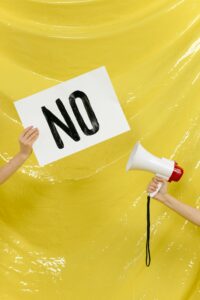
Q. I was playing doubles and at the net when our opponent hit a deep groundstroke that I thought was going to be long, so I turned back and yelled “NO” to my partner at the baseline. The ball did in fact land out, but one of the opponents insisted that I had called the ball OUT before it landed and couldn’t do that. I insisted that I said “NO”, not “OUT”. Is it ok to use the word “NO”? My understanding is that “OUT” is an actual call, while “NO” is just communicating with my partner. In this situation the ball was out and my partner didn’t play it, so my use of “NO” didn’t really affect the situation. However, I’ve said “NO” plenty of times when the ball did end up being good. If my partner lets it go and I was wrong, that’s 100% our opponent’s point. However, if my partner returns it but the opponents stop playing because they thought I called it out, I think it should be our point. You can’t always say “bounce it” if your partner is taking the ball in the air in front of the baseline, as they don’t have time to do that. “NO” is quick and an order to my partner, not a call. Your thoughts?
Is it Really a “Let”?!

Question 1: Playing a second set tie break. Opponents are down and in the middle of play call a let for a leaf? Is this legal? They also stated they can call a let for anything that distracts them.
Question 2: A player called a let because she thought she saw a moth! She said it could have been a ball? Then made us replay the point we had just won, is this allowed?
What Does “Altered” Service Order Mean?

In a doubles match with the set score at 5-2, we correctly switched sides with our opponents. It should have been my serve since I was #4 in the order, but one of our opponents (specifically #1 in the order) served a full game before any of us noticed. Looking up the USTA Friend of Court, we found the rule that since an entire game was played, the serving order would continue as altered. We all agreed that I should serve next, but we didn’t agree on who would serve after me. Should it have been my partner (#2 in the original order), our opponent (#1 in the original order who would normally follow me and who inadvertently served before me), or our other opponent (#3 in the original order)?
Grunting Grievances….
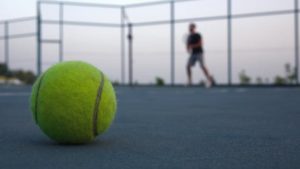
I was playing a doubles match and serving to a player who grunted a lot when they returned the serve. There were several serves that looked like they may be out, and the receiver grunted and returned. Both my partner and I thought he was saying “no” or “out” so we stopped play. The receiver stated it was a grunt, not an out call, and the serve was good. But we had stopped play so we gave them the point. This kept happening on every close serve throughout the match and was very distracting and we gave away a lot of points. Is there a rule concerning a player who sounds like they’re calling things out when they grunt?
Net Play Nuances….
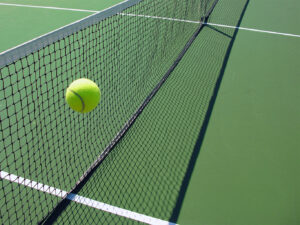
My opponent hit a volley at the net, but his racquet contacted the ball on my side of the court (before my return traveled to his side of the court across the net). Did he lose the point because he made contact before the ball crossed the net to his side of the court?
Doubles Service Order Error
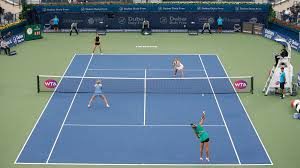
What happens when you accidentally mess up the service order? Does the server complete serving the current game and then the partner now serves the next service game? Or does the server who served out of order serve twice to correct or just once?
Who Wins the Point?
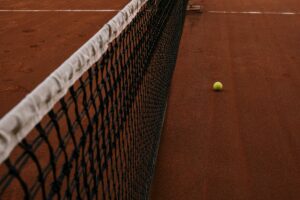
My opponent hit a drop volley with underspin close to the net. I charged forward and poked the ball over the net, and then needed to take care to avoid having my momentum push me into the net.
I braked my momentum to a stop with the outside of my leg about 6 inches from the net. While I was looking down at the net to make sure that I didn’t touch it, my opponent slapped at the ball, hitting into the net about 18 inches off the ground.
The ball stretched the net into my side of the court, causing the net (and the ball) to briefly touch my leg before the ball dropped to the ground on my opponent’s side of the net.
Who wins the point? This doesn’t seem to be clearly spelled out in the rules.
Ball Bounces Before a Serve – Keep It Timely!

Not long ago, I was playing a doubles match where one of our opponents bounced his ball at a minimum 30 times before he served every serve. It took a great deal of time. Is there a time limit to serve?
Practice Makes Perfect?!
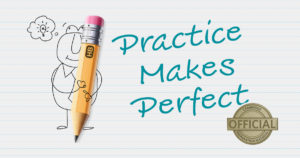
Between sets are you allowed to practice? For example, can you work on your serve? We were playing a match and during a changeover our opponent began practicing her serve. This was a doubles match and one player went to use the restroom and the other practiced her serve.
Two Wrongs Don’t Make a Right! (Part 2)
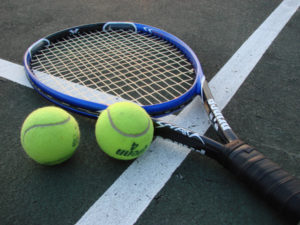
In the 4th game of a set, my partner and I inadvertently switched receiving sides and we realized this after the first point of the game. Do we make the correction for the next serve (meaning one player will receive two in a row) or do we finish the game that way? We know that the point stands but when and how do we correct?
Instant Replay!
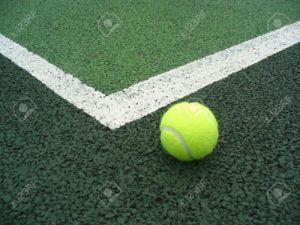
In doubles during a long rally a player is running back to their baseline to get to a lob. A stray ball from another court rolls onto the court near the feet of the player. The player’s partner calls “let” just before the lobbed shot drops a foot long. Since a “let” was called, would play be stopped immediately and the point replayed? Or, should the team that lobbed long concede the point, since the point was certain to have been lost by them?
Choose Your Words Carefully on the Court!

I was playing doubles. My partner and I were both up at the net. Our opponent hit the ball and as it was coming towards us I said to my partner, “It’s going out.” Neither one of us made a play on the ball and it did land out by several feet, so we then called it “out”. Our opponent said that it was their point because I couldn’t say the word “out” before the ball bounced outside of the court. I disagreed and said I can say whatever I want to my partner when the ball is coming towards us. Who is correct?
Two Wrongs Don’t Make a Right!

In a Combo match after six points had been played in a set tiebreak my partner realized we weren’t on the correct sides — she was receiving in the ad court and me the deuce. We identified our error and switched back, but the opposing team said we couldn’t, that we had to play the rest of the tiebreak in our “wrong” positions. Otherwise, they said, we would have an unfair advantage because the ‘stronger player’ would now be returning serve twice in a row. We know “all points played in good faith stand,” but should we have switched back or stayed put?
Receiving Team Hindrance Hijinks?!
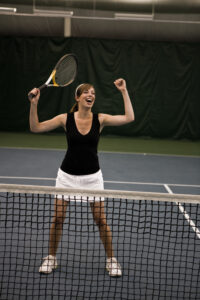
In a doubles match, I was serving to my opponent on the deuce side. Her partner was standing right at the “T”— which I know is legal. But while I was preparing to serve, she would wave her racquet across the center line into the deuce side.
Is this legal or could I call a hindrance?
Knowing the Rules Can Make or Break You!

Playing a third set tiebreak, 8-7. The wrong partner serves and nobody notices, winning the point, 9-7. The wrong partner then serves a fault to the deuce court, at which time the receiver realizes the error. The server says because she had already served the first ball that she must be allowed to serve the second. She serves and we lose the tiebreak and the match. The server in this case was much stronger on serve as we were routinely breaking the player that should have been serving. What is the rule?
Communication is Key On the Doubles Court!

My partner hit a ball close to the baseline that was in by about 5 inches. While the ball was still in the air the non-hitting partner on the other side called “out” to his partner. At this point the ball was very close to landing. The hitting partner played the ball as good. My partner and I stopped playing, thinking that they called it out. The ball came over the net on our side and we made no attempt to return it. The other team tried to claim the point since we stopped play. The out call and the hit were very close in time. We argued that this was a hindrance. Who’s right?
End of the Court Confusion??

I served the first point of the tiebreak from the north end. I was on the south end for the last point of the tiebreak. When we started the second set we agreed that my opponent should serve first because I had served the first point of the tiebreak. What we couldn’t agree on is what end of the court he should serve from. He said he should serve from the opposite end of where he finished the tiebreak. I thought he should serve from the opposite end of where he started the tiebreak. Who was right?
Tennis Ball Drops out of Your Pocket During Play??

During play, our opponent’s extra ball in her skirt fell out and her partner called a let.
Is this allowed?
Be Careful Calling A Double Bounce….
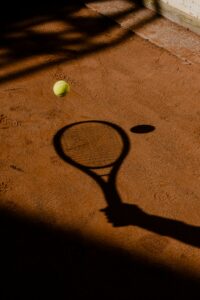
Recently, we had the Double Bounce situation on our court. I was the player who almost had a double bounce, but I was certain I got to the ball before it bounced the 2nd time and so I played on without saying anything. When my opponent went to return my shot, SHE stopped play and said my ball had bounced twice and since I didn’t clearly say “GOT IT” or “NO DOUBLE” when I hit the ball, to alert the opponent that I was playing on, she could stop play and argue that it was a DOUBLE HIT. I argued that only after the point could she question if I had a double hit, but that it was my call to make and I was not required to announce that the ball remained in play.
I would think I am only required to speak if I am stopping play because I know I DID hit a double bounce and am conceding the point. Who is correct here?
Does That Point Really Count??
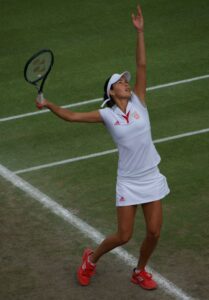
I was playing doubles and my opponent was serving. I called the serve out, but my partner didn’t hear me and my opponents acted like they didn’t hear either. We played out the point and we ended up winning the point. It was game point, so we switched sides and during the changeover my opponent admitted that she had heard my out call. She told me that since I called it out and then played out the point, it was their point. Who was right?
Disputing Scores or Dishonesty in Tennis??

My partner was serving. She was clearly calling the game score because our opponent had specifically asked us to call the score very clearly because our opponent said she was deaf and had to lip read. Before the last point, I clearly remember talking about a strategy to my partner who was standing on the ad side. The point was very long, we won it, and we called the game. The deaf opponent disputed that it was game and said we had just served to her partner. I specifically remember my partner serving on the ad side and we were both able to recall the last 3 points. Our opponent refused to agree. Her partner stood there in silence. Our opponent said the rule is if you don’t agree, you go back to the last point you remember. To top it off, after saying initially we had just served to her partner (making it ad in for us), she wanted to start the game over or go back to deuce. Her partner said that she thought it was at least ad in (for us). After arguing for 15 minutes, we conceded. We were so upset we ended up losing the game. I know there is a rule that says if you can’t remember then go back to the last point you remember and I’ve done that when no one could recall the last few points and there was confusion all around. But WE DID specifically remember, we called the score and we were serving. We thought we should get the game. After all, what prevents someone claiming they don’t remember to take away game point?
Does The Point Count If Players Forget To Change Ends??

In the middle of a second set 7 point tie break, I am leading my opponent 4-1. It’s his turn to serve. He loses the point and it’s now 5-1. Neither of us remembered to change sides at 4-1. He then approaches the net and points out that we forgot to change sides. I acknowledge it and we start to change sides but he then says that the last point doesn’t count and that we have to replay the point. I contest it because I’ve never heard that before and I doubt he would say that if he had won the point. Who is right?
Are Your Opponents Hearing Things?
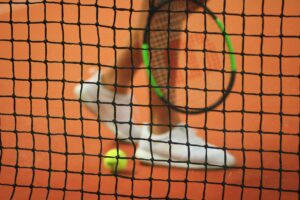
During a doubles match, our opponents claimed they thought we had called a let during a point and therefore had to replay the point (which we had won). We had not called a let, and neither of us had heard anyone call one. Should we have honored the request for a let/replay?
Check Up on Checking Opponents Ball Mark!
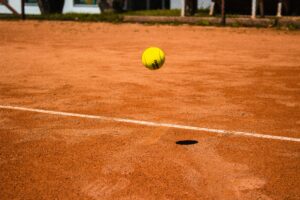
My team called a ball out at the baseline. The opponent disputed it and a disagreement ensued. The opponent then walked to my team’s side all the way to the baseline and circled in the clay where she believed the ball landed. Wrong mark, but my question is, isn’t it a rule that you can’t cross over to your opponent’s side of the court?
Racquets Flying Through the Air, Oh My?!
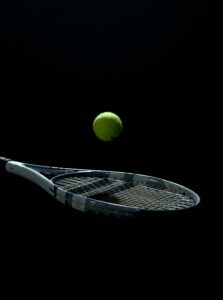
During a recent league doubles match I was serving. As my opponent was following through on his return his racquet accidentally flew out of his hand and landed pretty far away across the court, still on their side of the net. This was not just a quick racquet drop. Contact with the ball was completed before the racquet left his hand, and neither opponent made any verbal noises that could be considered a hindrance. My partner and I instinctively watched the racquet flying across the court rather than the ball and lost the point. Would this have been grounds for a let?
Are you allowed to serve like that??

One of the 4.0 rated singles players that I play against periodically likes to serve underhanded once in a while. That’s fine, except that sometimes he will fake an underhanded serve, causing me to charge toward the net, then go into his regular service motion and hit a first / traditional type of serve. By that time I’m probably six or 8 feet inside the baseline and have little to no chance of returning that first serve. As an aside, there is a slight hitch in his service motion when he goes from faking the underhand serve to his regular service motion, but nothing terribly extreme. Is what he’s doing within the rules? And if so, am I allowed to just call a let every single time he does that so that I can get back into my slightly behind the baseline receiving position?
Volley lovers, watch out for that net?!
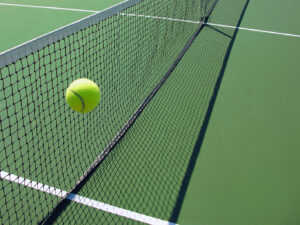
So, my opponent hit a powerful forehand drive into the net. I was prepared to volley. The ball pressed into the loose net on his side and extended in the net towards me and hit my racket.
When NOT to ask for score clarification?
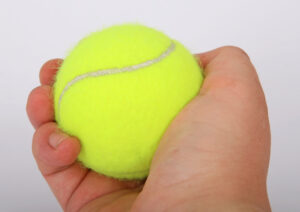
My partner was serving at 15-15. Our opponent returned serve back to my partner. My partner then hit the third shot of the game cross court to our opponent. She caught the ball and proceeded to say that my partner had called the score wrong claiming it was actually 0-30 (she was wrong about that). We talked through the prior points and could not agree on the score. I know we should have spun the racquet to determine the score since we could not agree, but what is the ruling on the point she stopped? It seems like that should be our point.
Was it a Let or a Lob That Went Long?
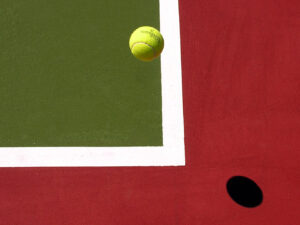
In doubles and during a long rally, a player is running back to their baseline to get to a lobbed shot, when a stray ball from another court rolls onto the court near the feet of the player. For the safety of the player, the player’s partner calls “let” just before the lobbed shot drops a foot long. Since a “let” was called, would play be stopped immediately and the point replayed? Or, should the team that lobbed long concede the point, since the point was certain to have been lost by them?
What Happens when you hit the Net Posts?
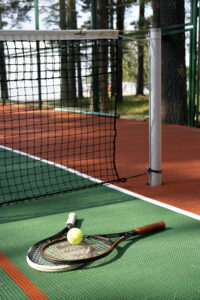
I was playing the other day and my partner’s ball hit the side metal net post at the top and landed in my opponent’s court. My partner thought the point was ours but the opposing team said that the net post is a hindrance and it is their point. Who is correct?
Here Comes the Serve, Ready or Not?
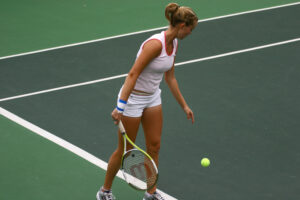
During a doubles’ match, it’s obvious that Mr. Voyeur is quite interested in what’s happening on an adjacent court. I’m serving to Mr. Voyeur’s partner (who is ready). Even though Mr. Voyeur is leaning on his racquet and watching the other court, I choose to proceed. And, I serve a fast, flat ace that catches the service line. Mr. Voyeur says that we should replay the point, citing that he wasn’t ready to watch the line for his partner.
What’s the deal with Bathroom Breaks?

Bathroom breaks are a problem at the pro and recreational levels. We understand that we can’t tell people when to go and when not to go, but we were wondering how we should handle this: Between sets, my partner and I went to the bathroom and didn’t take too much time. When we returned, one of our opponents decided to go to the bathroom and was gone for at least 15 minutes. We mentioned the length of time and that she delayed going until after we were back (size of bathroom is not an issue) to her partner. This person didn’t seem under duress or sickly. Do we have any recourse for lengthy bathroom breaks and while we are at it, frequent bathroom breaks? Seems like there should be clearer rules on bathroom breaks on all levels.
Can you and your partner switch back?
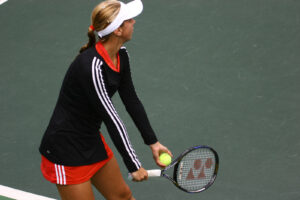
A set was won with Jane on deuce and Jill on ad. They accidentally switched sides to start the second set and realized it after the first point was played. Due to this being a new set, are they allowed to switch back to the sides they were playing in the first set?
Change in Line Calls – Surface Matters?!
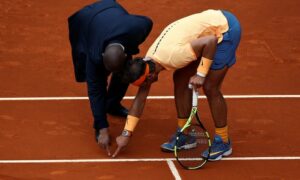
Doubles: One opponent called a ball in. His partner called the ball out and pointed to a ball mark. The partner who called it “in” then changed his call to “out”. They wanted to claim the point. We objected. What is the correct ruling if you are playing on clay and the ruling if you are playing on hard courts (sometimes there is a mark on hard courts)?
Was the serve “in” or “out”??

During a recent doubles match I was serving. While the opponent was returning her partner called the serve “out” then “in”, she saw the serve going long but because the serve had spin it landed in. We claimed the point because the return went into the net. Our opponent wanted to call a “let” because her partner called the serve “out” then “in”. Who is correct?
Can You Call a Let for Your Own Sneeze??

I was playing doubles and right after my partner served I sneezed into my mask that we are required to play in and the ball was returned right to me at the same time and I couldn’t react quick enough. Could I have called a let?
Is the Clock Really Ticking?
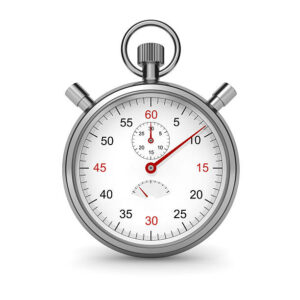
We were playing a doubles match and we felt that our opponents were taking too much time between points, at changeovers and between sets. We know that serving should be at the server’s pace, but they said that we were rushing them. The rules are there to be fair to everyone and to handle disagreements like these – so….
Still In Play or Out?
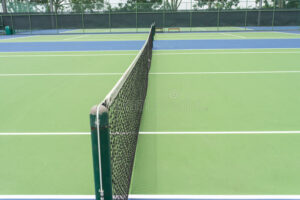
I was playing the other day and my partner’s ball hit the side metal net post at the top and landed in my opponent’s court. My partner thought the point was ours but the opposing team said that the net post is a hindrance and it is their point. Who is correct? What if the ball had hit a scorekeeper that is on the next post and landed in?
Know When It’s Your Call
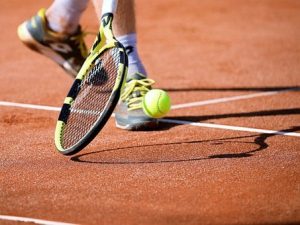
Our opponents hit a ball that dribbled over the net. My partner got to it and popped it up and miraculously it went over the net, high and slow. One of our opponents immediately asked “wasn’t that a double bounce” to which my partner replied no and that it was her call. About that time they hit a lob over her head and I didn’t really go for it because of the conversation at the net. They tried to claim the point but we said that it was a hindrance because of the talking and technically it is our point. She said that once my partner said “no” the point should have continued and that the “hindrance” rule was removed because people took advantage of it. We suggested that we wouldn’t give up the point but that we would replay the point (basically to keep the peace) and they agreed.
The Waiting Game

When I was on the baseline ready to serve, the opponents continued to stand together chatting for a couple minutes and I had to wait and it went on this way throughout the match. Should the game go at the pace of the server or can the opponents spend some time chatting and have the server wait?
Ball Hits Net Post

I was playing the other day and my partner’s ball hit the side metal net post at the top and landed in my opponent’s court. My partner thought the point was ours but the opposing team said that the net post is a hindrance and it is their point. Who is correct?
Who Can Make The Call
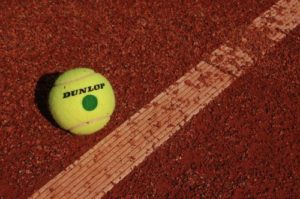
Our opponents hit a ball that appeared to be out but we both couldn’t call it with certainty. We asked our opponents if they saw the ball in or out since it was on the sideline where one of their player had a direct sightline to the ball. She said it was out so we claimed the point. She said that since we weren’t sure, we had to call it good. We didn’t argue and agreed to call it good, but felt that we should be able to go with her call. Who was right?
Finger Signal Sufficient for Line Call?
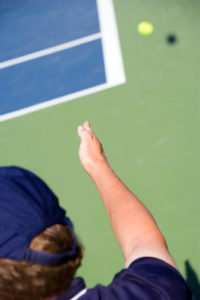
Verbal Let?

I was playing doubles. My partner and I were both up at the net. Our opponent hit the ball and as it was coming towards us I said to my partner, “Its going out.” Neither one of us made a play on the ball and it did land out by several feet, so we then called it “out”. Our opponent said that it was their point because I couldn’t say the word “out” before the ball bounced outside of the court. I disagreed and said I can say whatever I want to my partner when the ball is coming towards us. Who is correct?
Line Call Help

I was playing doubles on court #2 during a match recently. I was at the baseline. My opponent hit a shot deep in my side of the court near the baseline. Since it was close to the line, I was looking down at the court where the ball hit and determining whether it was in or out. Before I could make my call a player from the opposing team on court #1 yelled to us, “The ball was in.” I saw the ball as out. If I say the ball was out, it now feels like I’m making a bad line call. If I say the ball was in, I feel like I’m capitulating to the player on court #1. What should I do? Can the player on court#1 interfere in our match on court #2 with a line call?
Let the Serve Land
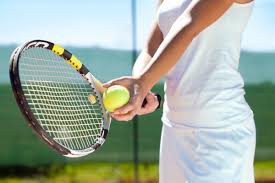
I was playing doubles and my partner was serving from the Ad court. The players on the opposing team were in the “normal” receiving positions with the player on the Ad side at the baseline to receive the serve and the player on the deuce side at the net. My partner hit an errant serve towards the net player on the deuce side of the court. The net player hit the ball back to us before it bounced on the ground and called “Out.” A let was not called. I said, “I believe that’s our point because you are not allowed to hit the serve before it bounces and you are not the receiver. I also believe you (the net player) need to move out of the way of the serve so it doesn’t hit you.” Was I correct with that call?
Order of the Day

If doubles partners accidentally switch receiving sides, they do not correct until next game receiving (must complete current receiving game as is and can correct next receiving game in that set)? So what about accidentally messing up service order? Server completes serving current game but partner now serves next service game? Do they serve twice to correct or just once?
Hearing Voices

My opponent hit a shot and, thinking that her ball was going out, commented on hitting it out, loud enough that we also believed the ball was going out. My partner and I stopped play based on her comments. The ball ended up landing in. We felt that it was our point since she talked during the point, no matter what she said. She agreed that she did indicate that the ball was going out but felt that because it landed in and we didn’t return it that it was their point. Who was right?
Benefit of the Doubt
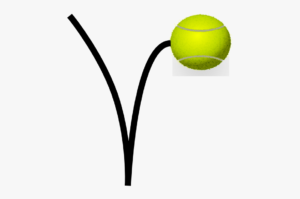
My partner returned a short ball. It possibly bounced twice (it was very hard to tell, but we both thought it was not a double bounce); she did NOT call a double bounce. Our opponent hit a hard shot back across the net while calling out, “Was that a double bounce?” The ball came right to me. I called a hindrance instead of making an attempt to hit it back as I was distracted by her talking. I said the ball was still in play as we didn’t make a call conceding the point. Instead of giving us the point for the hindrance, the opponents harangued my partner until she conceded it might have been a double bounce. It was game point. How do you handle a situation like this when you are the only player to understand the rules? A let isn’t an option. You can’t interrupt an active point in progress to question a call.
Wicked Spin
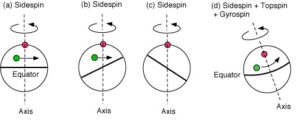
I got lucky with a smash at my feet. I framed it and created incredible spin (all by accident), and with the wind, the ball went over the net to the opposite alley, just barely in, and the backspin brought it back over to our side of the net. My opponent knows the rules and tried to reach the ball without touching the net, but could not and we won the point. But we wondered, could she have gone around the net post and touched the ball on the other side? If that was allowed and she was able to hit the ball to make it land in the court, what would be the rule be for getting back to the other (her) side of the net?
Full Contact Tennis
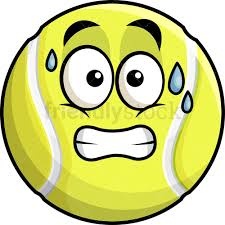
My doubles opponent hit a lob that bounced only inches from the net on my side. As I prepared to hit the overhead, the opponent’s partner charged the net, staying on her own side, but was an arm’s length away from me. It was a gutsy move to distract me. I am a club player and decent person, so I just could not allow myself to pummel her and likely seriously injury her, electing instead for the drop volley angle winner. My question, though, is if I had proceeded with hitting the overhead winner, hitting her in the process on my follow through without hitting the net, would that be legal?
Blinded by the Headlights

During a recent doubles match our opponent called a let when a car’s headlights came on in the adjacent parking lot. We replayed the point as the lights surely did affect their side of the court. However, I contend that this “hindrance” did not occur ON the court and should not have been eligible for a let call. And, the same thing could’ve happened to us upon switching sides. I compare this scenario to a car honking in the middle of a serve. But, what’s the call?
First Serve – Yes or No

My first serve missed and rolled over on the next court. My opponent turned to the other court and waited for them to send her the ball back. I felt I should have been given a first serve since she interrupted my service by having the ball sent from the next court. Should I get a first serve?
Play Delay

When I was on the baseline ready to serve, the opponents continued to stand together chatting for a couple minutes and I had to wait and it went on this way throughout the match. Should the game go at the pace of the server or can the opponents spend some time chatting and have the server wait?
Falling Objects

During play, one my opponents had a ball fall out of his pocket onto the court. Does he immediately lose the point, or do you just play on as normal?
Look But Don’t Touch?

During a doubles’ match, the player scrambled forward to get to a drop shot. She was able to hit a hard crosscourt forehand winner well out of either players’ reach. However, she ran into the net. She claimed that the point was over before she touched the net. While I agree that the opposing team could not have gotten to the ball, I contend that the point isn’t officially over until the ball bounces a second time. What’s the rule?
Let Me Bee
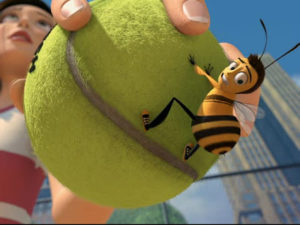
Finish What You Started
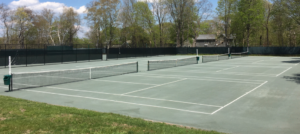 If you start a match on a particular surface, say hard court and the match is delayed for rain to another day, does it matter if it is finished on a different surface?
If you start a match on a particular surface, say hard court and the match is delayed for rain to another day, does it matter if it is finished on a different surface?
